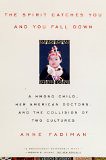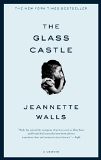First things first, HT to Bookshelves of Doom.
You may want to preorder your copy NOW of Pride and Prejudice and Zombies: The Classic Regency Romance+Now with Ultraviolent Zombie Mayhem! How can you resist?!
Y'all saw the results of this morning's ALA Youth Media Awards, right? For me, it provided the perfect excuse not to work out. Ok, the cuteness of the dog would have worked this morning, but obviously, a good children's librarian should watch the awards webcast instead of working out, right? RIGHT!
I have very strong opinions in some of these categories, but they're the same categories that I'm sitting on non-ALA awards committees for (Cybils and Blue Crab) so I'll keep my trap shut until I'm allowed to discuss such things.
In other news, The New Classics Challenge ends on the 31st. This started in AUGUST, but I forgot about it until this month. Whoops. So far, I've read 2.5 of my 6. Also, I was supposed to read The Bonfire of the Vanities: A Novel but I couldn't find our copy, so given I was checking a book out of the library, I figured it should be The Sandman Vol. 1: Preludes and Nocturnes.
Anyway, the two I finished are both nonfiction! Yay!
The Spirit Catches You and You Fall Down Anne Fadiman
I have long wanted to read this book because of the fact it deals with Hmong culture. Growing up in the 80s and 90s in Northeast Wisconsin, the Hmong made up the vast majority of the non-white population, but this isn't an ethnic group that you hear a lot about, which has always surprised me.
One of the reasons I love the Jackson Friends series so much is because there is a Hmong character.
The Spirit Catches You and You Fall Down is a heartbreaking tale of a young Hmong girl in Merced, California, who has severe epilepsy. Due to the language and cultural barriers between her family and the medical community, the system fails her utterly.
Fadiman's account explains how each side tried its hardest to help Lia Lee and how each side completely failed her. Mostly, she does this without judgment and anger, but once and awhile, she can't, and I can't really fault her for that.
Fadiman does an excellent job of explaining the medical issues surrounding Lia's condition and treatment, as well as the cultural issues surrounding her life, and the history of the Hmong people and their life in America.
My only fault with the book is that it tends to treat Hmong culture as completely homogeneous, without the usual disclaimers or sentence weakeners you see in other cultural books, such as "traditionally X culture does... " or "many member of Y ethnic group feel..."
My other wish is for an updated version, as many of the troubles facing the community Lia and her family lived in had to deal with immigration and welfare status--both contentious issues that have undergone drastic changes since this book first came out in 1997. Luckily, the book's website does offer updates on how the people we meet in these pages are doing since publication.
Oh, and when discussing China, it uses the Wade-Giles instead of Pinyin system of romanization, but that's a China-geek complaint, and the book isn't about China, so I'll let it slide.
The Glass Castle: A Memoir Jeannette Walls
I picked this one because it's on the scary list.
Jeannette Walls grew up unbelievably poor. Her father was a dreamer and drunk, her mother an artist who didn't want to be tied down with a regular job. As a result, they moved a lot, lived in places with no water or electricity and often went hungry. Despite this Jeannette managed to attend Barnard and is now a gossip columnist for MSNBC.
While Walls life was unbelievably hard, the plot is the only driving factor in this book. The events make it readable, but the characters are flat--there's little insight, or feeling. (Except for Walls embarrassment when she feels people are laughing at her, or staring. So it's odd that she became a gossip columnist, right?) Many times when writing about something horrible, survivors tell their tale in a detached manner--as if truly engaging in the subject matter again would inflict great physiological damage, which it might. While this is quality I will forget in stories that we would otherwise might not hear, such as This is Paradise!: My North Korean Childhood, I'm less forgiving in instances such as these. First this happened, then this, then this, then this. No analysis, just plot.
While engaging, I'm not entirely sure why it won so many awards because the literary merit isn't as there as it could be.
Overall, I give it a resounding "meh"
Nonfiction Round up is here.
New Classics Round up is here.



1 comment:
Hi!
Don't forget to do a wrap-up post and vote for your favorite to qualify for the contest!
Post a Comment